When you hear the word “yokai,” you might think of well-known figures such as kappa, tengu, or nurarihyon. But Japan has countless other yokai that remain relatively unknown, each with unique traits and eerie charm. Among them, one of the strangest and most unforgettable is Tenome.

手の目(Tenome)!
As its name suggests, Tenome is a yokai with eyes on its palms. This unsettling being has appeared in Edo-period illustrations and folktales, leaving a lasting impression thanks to its bizarre design and chilling backstory. In this article, we’ll dive into the origins, appearance, and cultural influence of Tenome, exploring why it continues to capture people’s imagination today.
What is the Yokai “Tenome”?

Today’s topic is Yokai “Tenome”.
Distinctive Appearance of Tenome
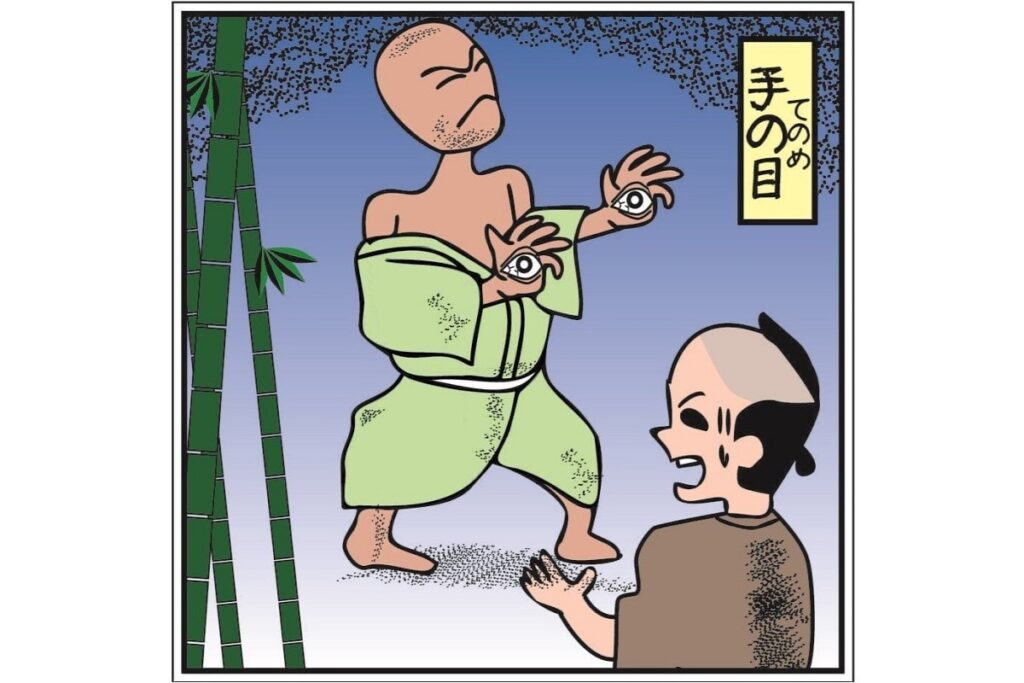
Tenome is exactly what its name implies: a figure with eyes embedded in its palms. Instead of eyes on the face, it carries a pair of glaring eyeballs on each hand. What makes it even stranger is that it appears in the guise of a zato—a blind traveling musician or masseur in old Japan.
This combination of the familiar (a human form) and the grotesque (eyes on the palms) makes Tenome one of the most visually striking yokai in Japanese folklore.

They say Tenome walks with its palms facing forward, as if searching for something.
Appearance in Toriyama Sekien’s Gazu Hyakki Yagyō
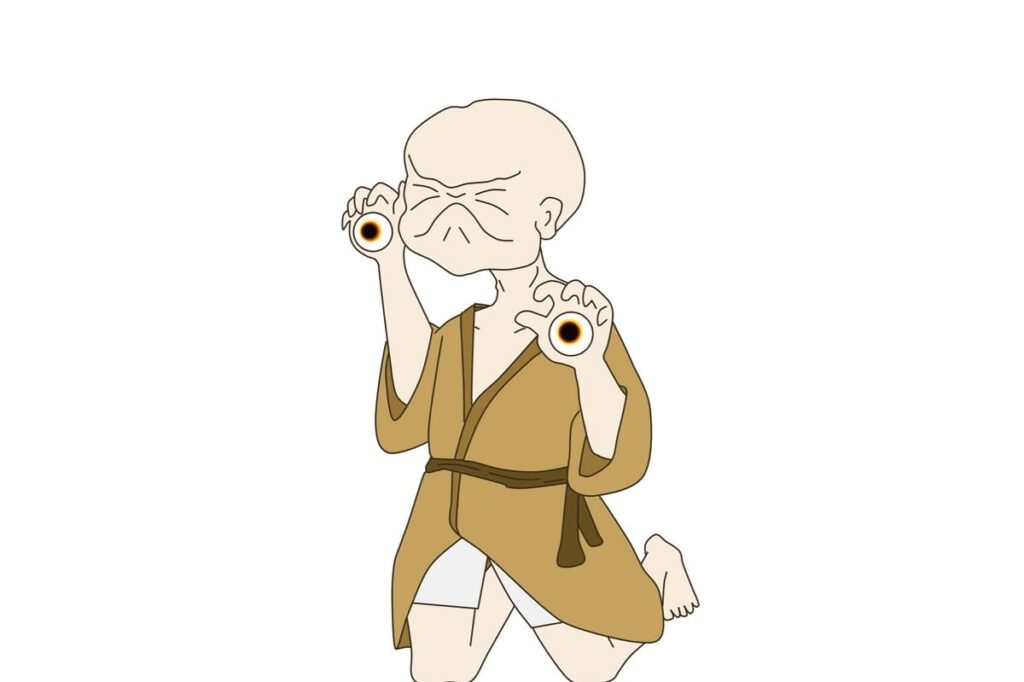
The Tenome gained wider recognition thanks to Toriyama Sekien, the famous Edo-period artist known for illustrating yokai. In his illustrated compendium Gazu Hyakki Yagyō (“The Illustrated Night Parade of a Hundred Demons”), Tenome is depicted in all its eerie glory.
Sekien’s work played a huge role in cataloging and popularizing yokai, and his rendering of Tenome ensured that this peculiar spirit became part of Japan’s enduring supernatural lore.
The Origin and Legends of Tenome
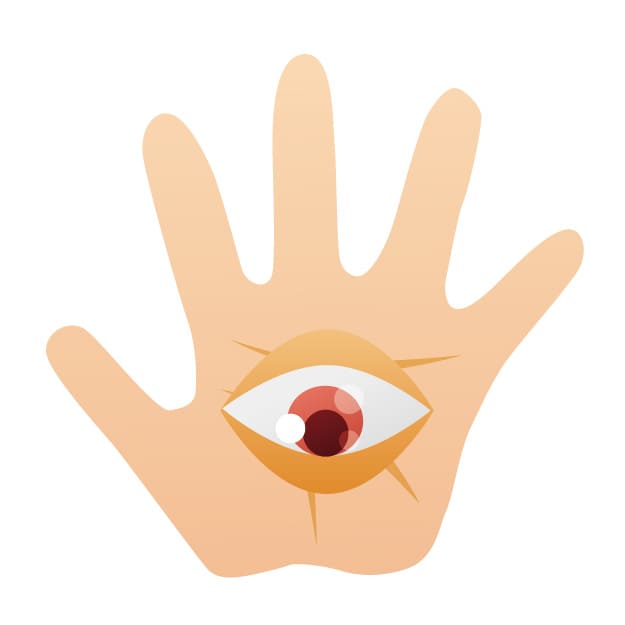
According to folklore, Tenome is said to be the ghost of a blind man who was murdered by bandits. After death, his spirit transformed into this grotesque being, forever roaming in the form of a zato with eyes on his palms.
This tragic backstory adds a layer of pathos to Tenome’s frightening appearance. Instead of being a mere monster, Tenome can also be seen as a reflection of human suffering and injustice.
The Fear and Fascination of Tenome
Symbolism as a Yokai
Tenome may be interpreted as a symbol of grief, resentment, and the struggles of marginalized people in old Japan. Rather than just being a supernatural oddity, it embodies the pain of those who lived difficult lives and died under tragic circumstances.
Tenome in Modern Culture
Although encounters with Tenome are no longer part of living folklore, the yokai’s design continues to inspire creators today. The concept of “eyes on the body” has appeared in manga, films, and video games, often as eerie monsters or cursed beings. Even if people don’t know the name Tenome, they may recognize its influence.

In Demon Slayer: Kimetsu no Yaiba, there’s also a demon with eyes on its hands, right?

And in Jujutsu Kaisen, the main character has a mouth on his hand instead.
Influence on Horror and Creative Works
The idea of eyes appearing on unusual parts of the body is a recurring motif in horror and fantasy. Many modern depictions of such creatures may well trace their inspiration back to yokai like Tenome. It is a testament to how Japan’s supernatural traditions continue to fuel imagination worldwide.
Yokai Tenome Q&A
- QWhere can I see Tenome today?
- A
You won’t encounter Tenome in real life, but you can find it in illustrated yokai collections, museum exhibitions, and books on Japanese folklore.
- QAre there other yokai with eyes on their bodies?
- A
While not common in traditional folklore, modern adaptations and creative works often play with similar ideas, likely influenced by Tenome.
- QIs Tenome just meant to be scary?
- A
Not exactly. While its appearance is frightening, its backstory reveals human emotions such as sorrow, resentment, and longing—making it more than just a monster.
Final Thoughts about Yokai Tenome
Tenome is one of Japan’s most unusual yokai, defined by its eyes on its palms and its tragic origin as the ghost of a murdered blind man. Thanks to Toriyama Sekien’s artwork, this bizarre spirit became part of Japan’s enduring folklore, inspiring countless reinterpretations in modern culture.
Tenome shows us that yokai are more than just scary figures—they often reflect human struggles, fears, and emotions. If you’re curious about Japan’s supernatural world, Tenome is the perfect entry point into the mysterious and thought-provoking world of yokai.

If you are interested in Japanese yokai, and you love gaming, you may love these games! Let’s play!

Yes! Let’s play!

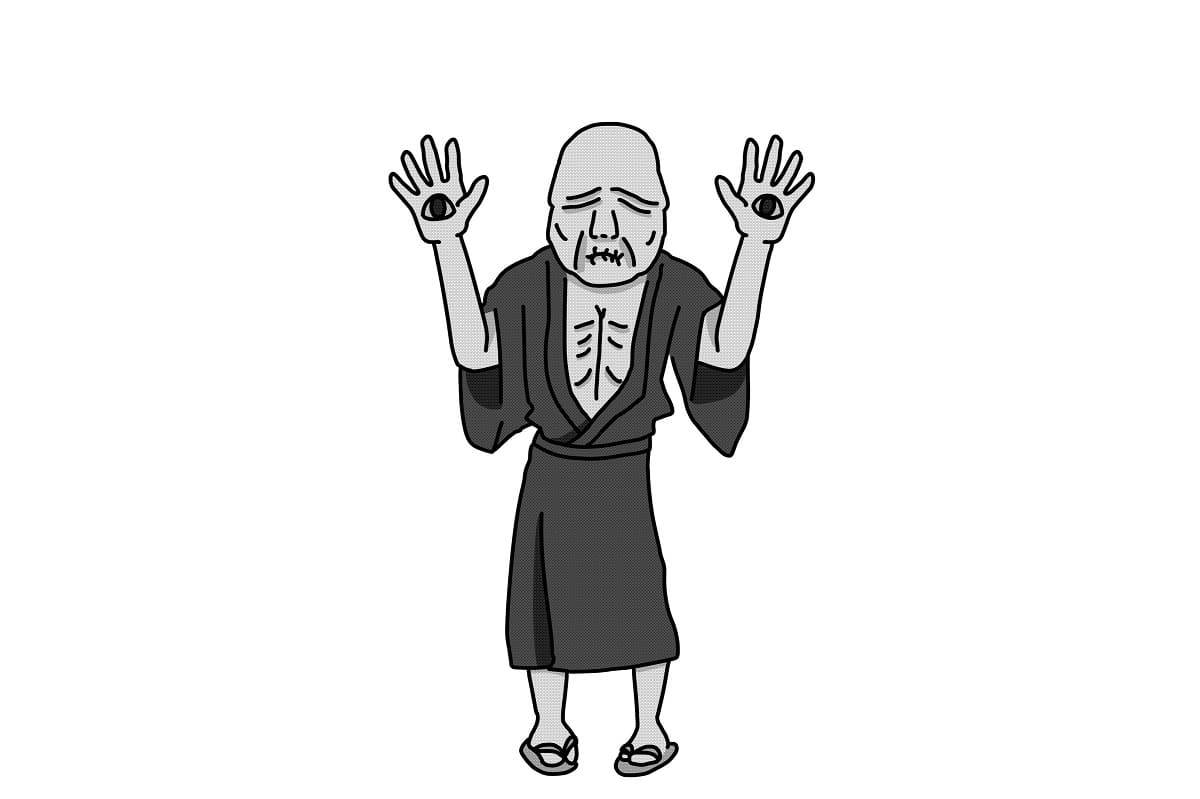
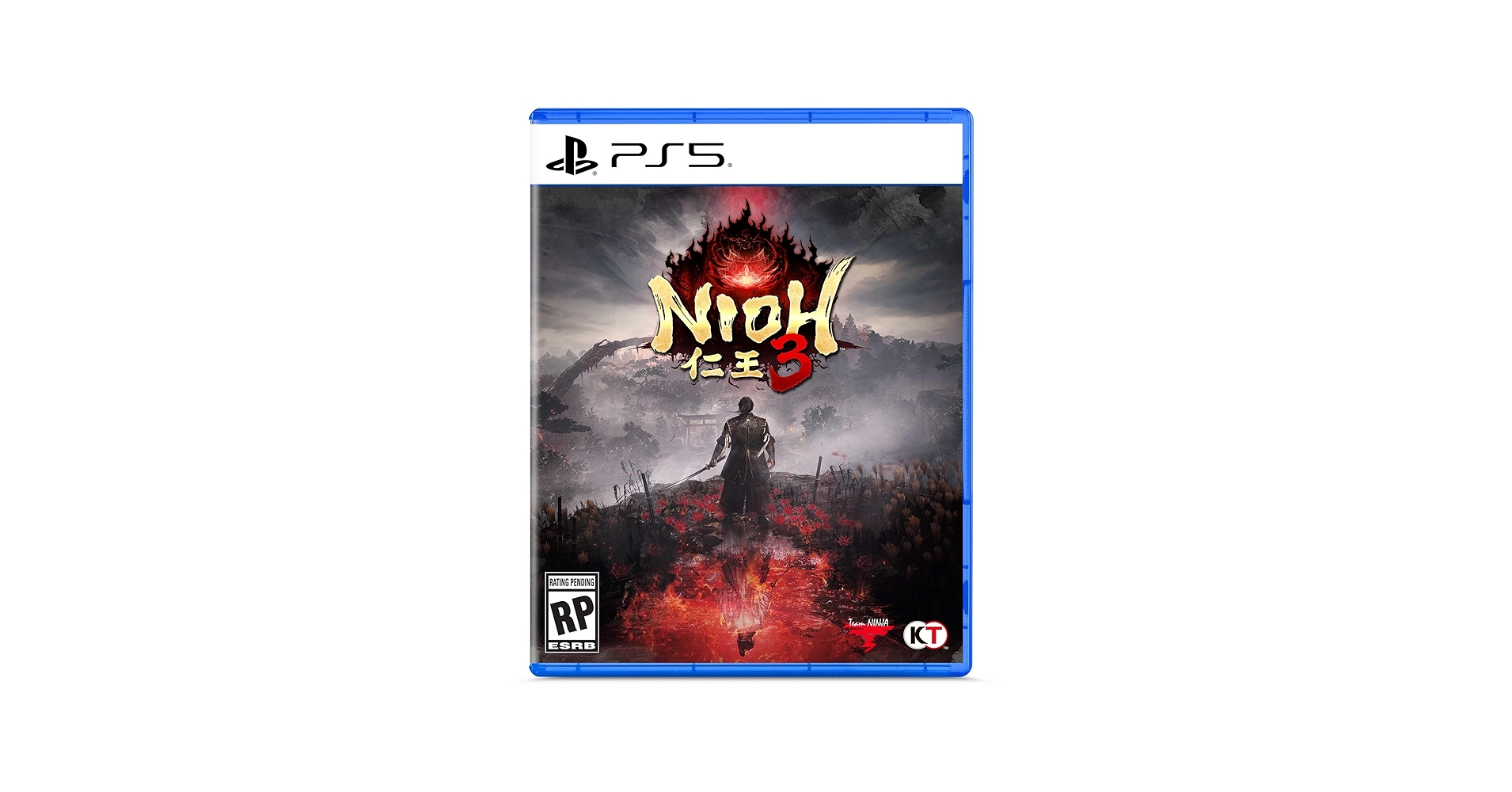
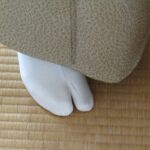

Comments